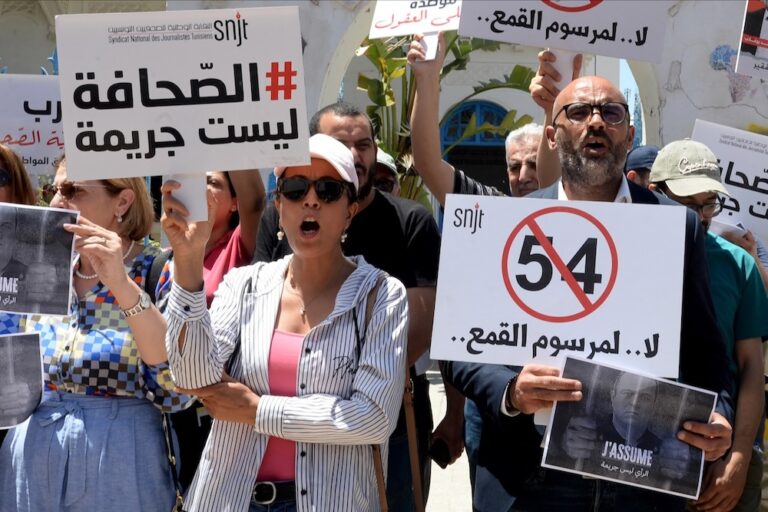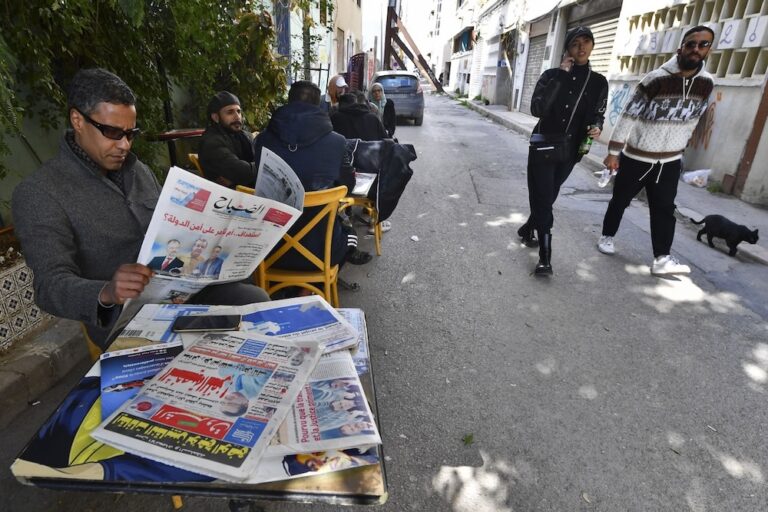IFEX-TMG says time is of the essence to effectively support freedom of expression by adopting a series of positive measures and setting high standards for the future.
(IFEX-TMG) – As Tunisia is preparing to hold historic elections on 23 October, the profound reform of the media sector is yet to take place, despite genuine initiatives taken and valid recommendations made by competent groups and voices. Yet, time is of the essence to effectively support freedom of expression by adopting a series of positive measures and setting high standards for the future.
In this context, the International Freedom of Expression Exchange Tunisia Monitoring Group (IFEX-TMG), a coalition of 21 free expression groups, urges the interim government to authorise without any further delay the 12 radio and five television services recommended by the National Authority to Reform Information and Communication (INRIC), respectively on 29 June and 7 September, to start broadcasting.
In its April mission report, the IFEX-TMG had already recommended “the rapid assignment of frequencies for new services that can add to the plurality, diversity and independence of services available” in the run-up to elections. This process, which is critical in the extraordinary times Tunisia is living through, needs to be unlocked.
In the course of a two-day strategy workshop held in Tunis on 27 and 28 September, Tunisian media and civil society participants invited by the IFEX-TMG shared their assessment of the media landscape nine months after the revolution and formulated recommendations and action plans to guide the reform of the media sector, create the legal and institutional framework on freedom of expression, promote the development of the broadcast and print media sectors, and protect the Internet from the resurgence of censorship.
Among the priorities highlighted by the participants were:
• the promotion of strong constitutional and legal guarantees for freedom of expression rights, and access to information,
• the establishment of an independent regulatory body that can effectively promote the independence and growth of a public service, private, commercial and community broadcasting sector,
• the adoption of positive measures that support the development and reach of independent print, broadcast and online media,
• the promotion of a digital culture, by supporting blogging, online activism and citizen journalism,
• and the empowerment and protection of journalists dedicated to quality journalism that can serve and inform the public at large.
The IFEX-TMG members wish to acknowledge the outstanding dedication of media professionals, civil society groups and consultative bodies in reforming the media sector and achieving reforms and professionalism after decades of repression and hardship. Their ambition and vision for their profession and society can no longer be held hostage by those whose only desire is to stall the reform process to protect their own interest.
Among the civil society groups leading sessions at the workshop were the Association tunisienne des femmes démocrates (ATFD), the Centre de Tunis pour la liberté de presse, l’Observatoire pour la liberté de la presse, de l’édition et de la création (OLPEC), le Syndicat national des journalistes tunisiens (SNJT) and le Syndicat tunisien des radios libres (STRL).
The workshop was led by the World Association of Newspapers and News Publishers (WAN-IFRA) in cooperation with the World Association of Community Radio Broadcasters (AMARC), Index on Censorship and ARTICLE 19.
The full report is now available at: http://ifex.org/tunisia/2011/10/18/workshop_report/


